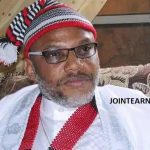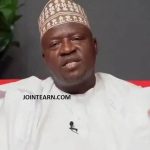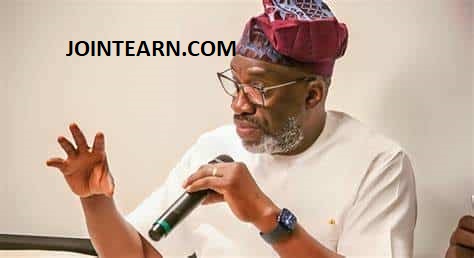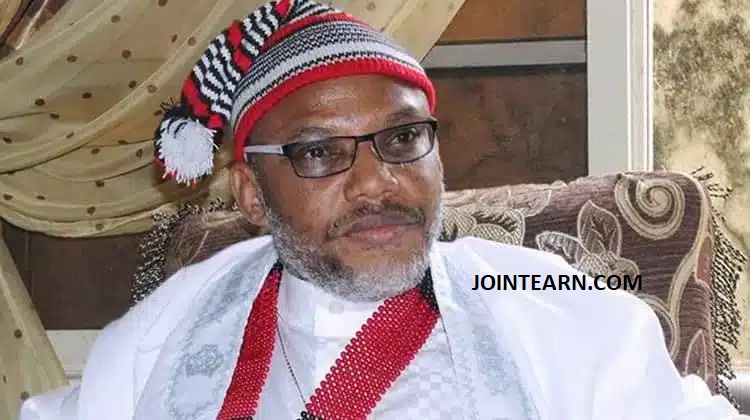Timi Frank, a former deputy national publicity secretary of the All Progressives Congress (APC), has accused President Bola Ahmed Tinubu of engaging in blackmail and putting significant pressure on five governors from the People’s Democratic Party (PDP) to defect to the APC. Frank’s allegations come amid growing speculation about the political maneuvering and alliances ahead of the 2027 general elections.
In a statement released earlier this week, Frank claimed that Tinubu’s government had been using various forms of coercion, including threats and undue influence, to force the governors to switch parties. According to Frank, the political pressure was intended to bolster Tinubu’s support base and ensure that his administration maintains a firm grip on power in the coming years.
Accusations of Blackmail and Duress
Frank, who has been vocal about his criticisms of Tinubu’s administration, pointed to specific governors from the PDP, alleging that they had been subjected to “serious blackmail” by the presidency. The former APC spokesperson accused Tinubu of using state machinery and various forms of leverage to force the governors to abandon their political parties and join the ruling APC.
“In the past few months, the APC has been working tirelessly to destabilize the PDP, and the focus has been on a few key governors who hold significant sway in their states. The President has been involved in direct negotiations, but these talks have been far from voluntary. These governors have been placed under duress, and the pressure on them to defect has been immense,” Frank stated.
He did not name the specific governors involved but hinted that their identities would become clear in due course, especially as defections continue to make headlines.
Political Implications of the Defections
The defections, according to Frank, are part of a broader strategy by Tinubu to consolidate political power in the APC ahead of the 2027 elections. Frank believes that the defection of influential PDP governors to the APC will not only weaken the opposition party but also bolster the ruling party’s chances of retaining political dominance across the country.
“The political chess game being played is beyond just party affiliation. It’s about power, control, and the manipulation of political structures to favor one man’s ambition. The integrity of these governors is at stake, and the people of Nigeria deserve to know the truth about how these decisions are being made,” Frank said.
The former APC official also raised concerns about the ethical implications of using state power to sway the political leanings of state governors, questioning whether this was the type of democracy Nigerians deserved.
The Role of Governors in Nigerian Politics
Governors in Nigeria wield substantial influence, both within their states and at the national level. A governor’s ability to secure political and economic benefits for their region, along with their local support base, makes them key figures in any national political contest.
In many parts of the country, governors are seen as the final authority in determining political outcomes. Their defection from one party to another can have a profound impact on the political landscape, particularly when they bring their supporters and resources with them.
The governors of key states such as Oyo, Rivers, and Bauchi have been linked to rumors of potential defection in recent months. If these high-profile figures do decide to switch parties, it could significantly alter the political balance and leave the PDP in a state of disarray.
Timi Frank’s Criticism of Tinubu’s Leadership
Frank’s accusations also come against the backdrop of his consistent criticisms of Tinubu’s leadership style. In recent years, he has been a vocal critic of Tinubu’s rise to power and his handling of national affairs. Frank has previously raised alarms about what he perceives as authoritarian tendencies within the APC and its leadership.
“Under Tinubu’s leadership, Nigeria has witnessed a deterioration of democratic principles. From the way his party has handled internal dissent to the pressures on governors and other key political figures, it is evident that there is an erosion of fundamental freedoms,” Frank stated.
He also accused Tinubu of using government resources and privileges to manipulate political outcomes, accusing the president of fostering a system where loyalty to him takes precedence over loyalty to the Nigerian people.
The PDP’s Response and Denial of Coercion
In response to Frank’s accusations, the PDP has denied any involvement in any form of coercion or blackmail, insisting that the decisions made by their governors are strictly personal and political. The party’s spokesperson, Debo Ologunagba, dismissed the claims as baseless and motivated by political rivalry.
“It is unfortunate that Timi Frank, who once enjoyed the benefits of Tinubu’s political patronage, has resorted to making unsubstantiated claims. The PDP governors remain steadfast in their commitment to the party and are working hard to deliver on their mandates,” Ologunagba said in a statement.
The PDP further emphasized that no governor had been coerced into any decisions, and they firmly believed in the democratic process. The party also expressed confidence in the loyalty of its governors and rejected any attempts to destabilize the opposition party.
Public Perception and Reactions
Frank’s statement has ignited a fresh round of discussions about political ethics in Nigeria. Many Nigerians, especially supporters of the opposition, have expressed concerns about the increasing influence of the presidency over state governors. There is growing skepticism about the impartiality of the political process, with critics accusing the ruling party of undermining democratic institutions and due process.
While some Nigerians have criticized the alleged manipulation, others believe that defections are a natural part of politics, especially in a highly competitive environment like Nigeria’s. Regardless of these varying opinions, it is clear that the accusations of coercion have added fuel to an already tense political atmosphere.
Conclusion
As the political drama unfolds in Nigeria, the country’s future political landscape seems increasingly uncertain. The allegations made by Timi Frank, if proven to be true, could have significant implications for the way Nigerian politics is conducted. If not addressed, it could further erode trust in the political system and deepen the sense of disillusionment among voters.
As 2027 approaches, all eyes will be on the actions of the governors and their parties, with many wondering if more defections are on the horizon or if political realignment will change the course of Nigeria’s political future.











